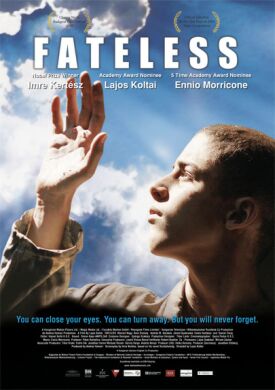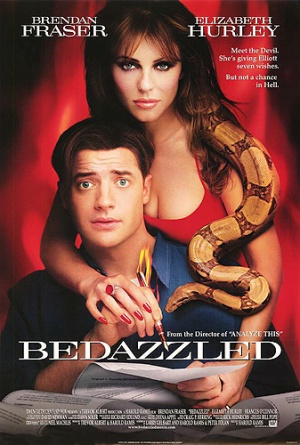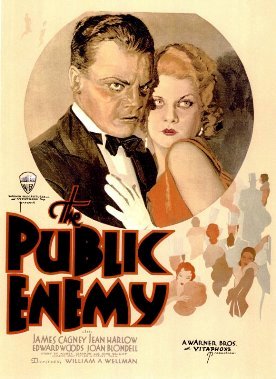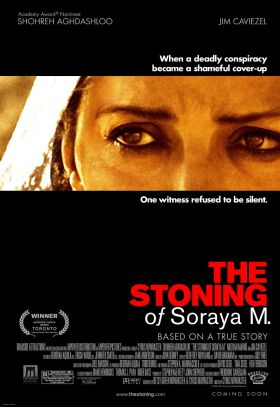Fateless
Holocaust movies that are not documentaries too often seek to elicit pathos by piggy-backing on one of the great tragedies of history. It seems to me a bit of a cheat. Other films have laboriously to build up sympathy for their characters; the Holocaust film has only to re-construct the now-familiar landscape of the death camp, and its inmates become automatic recipients of our pity. Lajos Koltai, who directed Fateless (Sorstalanság) from a screenplay adapted from his own novel by the Nobel prize winner, Imre Kertesz, gets around this problem by rejecting the pity. Its hero, György Köves (Marcell Nagy), usually known as Gyuri or Gyurka, is as Mr Kertesz was a 14-year old Hungarian Jew swept up in the deportations that followed the Nazi invasion of Hungary in March of 1944. The Hungarian Jews had grown used to thinking of themselves as privileged over other Jews within the Nazi empire. If there were rumors of what had happened to the Jews of Poland, too many of the Hungarians thought, as one says in the film: “We’re not Poles.” A common view was that Hitler was “using us Budapest Jews to wring concessions out of the Allies.”
So when Gyuri’s father (János Bán) is among the first to be deported — supposedly to a forced labor battalion — the family is concerned but not unduly alarmed. Neither he nor anyone else seems to contemplate the possibility that he won’t come back. One of the most memorable scenes in the film occurs when, on the eve of his departure, his father sits down to pray with Gyuri, telling him that it is time for him to leave his carefree childhood behind. “You too are part of the common Jewish fate now,” he tells him: the thousands of years of persecutions. But as Gyuri mumbles the imperfectly remembered Hebrew words in unison with his father, his eyes wander to the neighbor girl, Annamária (Sára Herrer), to whom he is attracted and who is visible through the window behind his father.
We know already something of the relationship between the two teenagers, as a meeting on the stairs has led to a rebuff by Annamária to an attempted advance by Gyuri. “What about last night during the air raid?” he asks her.
“I was just scared,” she replies, “and you took advantage.”
It’s the story of his life. While everybody else is concentrating on momentous possibilities of death, Gyuri is getting on with the business of life, and this is what makes him self-consciously refuse his part in “the common Jewish fate” mentioned by his father — or any other kind of fate either. Later, during another air raid, Gyuri’s voiceover asks: “Will it drop it, or won’t it drop it? I just had to recognize the pittance of the stake to enjoy the game.” The “stake” is of course his own life, and if enjoyment seems an odd way of characterizing his response to being bombed it becomes much more odd as a response to Auschwitz and Buchenwald — to which, soon after, Gyuri finds himself transported.
The scenes in the camps are very harrowing indeed, and young Mr Nagy has the sort of face it is impossible not to watch. The boundaries of his world are now defined by one man (József Gyabronka) who can’t get over his ill luck in having been only five minutes away from not being picked up by the police and another, Bandi Citrom (Áron Dimény), who stresses the importance of “self-esteem” and dreams of once again walking down Nefelejcs Street in Budapest. “It’s not a great goal,” he admits, “but who cares? It’s a goal.” As between one who sees himself as the victim of fate and another who defies it, there’s no doubt where our sympathies are supposed to lie. Hence the title.
In the final scenes, this approach to the Holocaust is taken to what Kertesz himself delightedly calls the “scandalous” length of Gyuri’s claim in another voiceover actually to have been happy in the death camps. “They only ask about the horrors,” he says of the family and friends who managed to escape these things. “I should talk about the happiness of the camps next time. If they ask.” Having witnessed many of the horrors thanks to Mr Koltai’s camera, we are inclined to discount this statement, but its prominent position makes it unignorable — like, one would have imagined, the Holocaust itself.
“There is nothing either good or bad but thinking makes it so,” says Hamlet — the character who, along with Don Quixote, set the example to the modern world of living inside one’s own head. Gyuri’s equivalent is: “There’s nothing too unimaginable to endure,” and it issues from the dreadfulness of his own experience as a great affirmation. I’m not so sure. It’s a fine thing for a man not to allow himself to be beaten down by bitter experience, or to find matter for happiness even in the most miserable conditions, but to make so much a point of it sounds just a little too much like bravado, a way of not keeping things in proportion.
In a way, that disproportion is the mirror image of the Holocaust movie which tries to milk the pathos of the victims’ fate for artistic effect. Both depend, that is, on exaggerating either the acceptance or the defiance of that fate when surely the actual experiences of most of those who went to the camps must have been a mixture of the two. And, of course, most died anyway. Any tale of survival is thus a distortion. But Messrs Koltai and Kertesz have made a memorable and impressive movie about the Holocaust that resists the temptation to wallow in emotion, and that’s a rare accomplishment.
Discover more from James Bowman
Subscribe to get the latest posts to your email.








